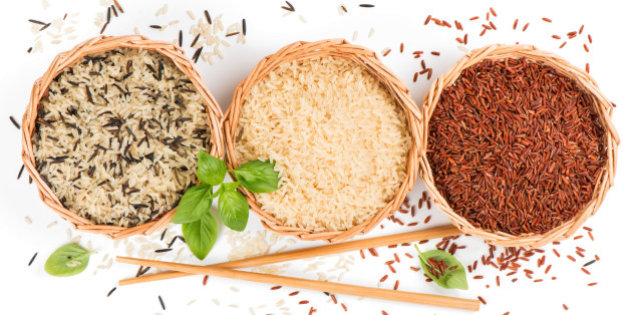Recently, a group of researchers revealed in a study that eating more rice could help reduce global obesity rate, which you can read about here.
Since we kena bash by some of our readers for that article (yes, we heard you loud and clear) and we’re no experts, we got an actual dietitian -- Nur Hafizah Mahamd Sobri -- to help us make sense of the admittedly confusing study.

So, can eating rice really help reduce obesity?
According to Nur Hafizah, it really depends on how you consume rice.
“First of all, we have to understand what causes excessive weight gain that leads to obesity.
“The concept is simple. If there is an imbalance in the intake of energy (what we call calories) as opposed to the amount of energy burned through physical activity and exercise, then this will cause weight gain,” she said.
_1.gif)
Basically, if you gorge on food but don’t exercise, you put on weight and can become obese.
Nur Hafizah also stressed that calories don’t only come from carbohydrates. You have to take into consideration everything else you eat with or without the carb.
The protein and fats you take also contribute to your calorie intake. In fact, even ‘healthy’ stuff like salads and cooked vegetables can be unhealthy if you drown it in rich, creamy dressing or deep fry.
“The study states that intake of 50g of rice a day can reduce obesity but did you know one scoop (senduk) of rice is already 50g?
"We are not taking 50g per day. We are taking an average of 150g (three scoops) of rice per serving!” she said.
.gif)
She added that if you consume rice with healthy sides cooked in a healthy way - soups, steamed or roasted - it will help with cutting out those unwanted extra calories but at the same time doesnt make you starve by limiting your food intake.
“So, my answer to this is rice is not the culprit. We must not only look into the amount but also the side dishes as well if we want to reduce obesity,” she said.
Are all rice created equal?

According to Nur Hafizah, when dietitians speak about making healthier choices, they refer to the amount of fiber found in each serving.
“The higher the amount of fiber, the slower the digestion, therefore it will help you feel fuller for a longer period of time. We will also need a smaller amount to feel content or stuffed,” she said.
Examples of higher fiber content include brown rice, mixed grain rice and many others.
Hmm… sounds to us like rice is pretty healthy if you eat them right, so what is this whole fad of no-carb or low-carb diet?
Is carb our enemy?
.gif)
Carbohydrate is one of the main macronutrients, and countless high-rating studies show that carbohydrate is needed as the main source of energy.
"In local recommendations, about half of our calories should be from carbohydrate, therefore cutting out carbohydrates or taking way below the recommendations will have disastrous effect on your health.” Nur Hafizah said.
What are these disastrous effects? In the short term; extreme fatigues, bloating, nausea and dizziness.
.gif)
In the long run, it will result in kidney damage, cardiac problems and many more unwanted side effects.
Erk…that sounds really dangerous.
“The culprit of weight increase is the total calorie intake, and low energy output,” Nurhafizah said.
She added that if you find it too difficult to refer to the Recommended Nutrient Intake Malaysia 2017 (RNI 2017) food pyramid to make better choices, you could always refer to Healthy Plate Malaysia to ensure that your intake is healthy, balanced and calorie intake can be controlled.

Whoa…what are those?
RNI 2017 is an extensive recommendation of nutritional intake designed for Malaysians based on local consumption.
Healthy Plate, on the other hand, is a much simpler guide where you’re encouraged to fill a quarter of your plate with carb, a quarter with protein and half of it with fruits and vegetables.
Nur Hafizah also cautioned people against cutting down on any food groups, unless specifically recommended by experts.
.gif)
“Please do not follow extreme recommendations such as fad diets for your weight loss,” she said, adding that you should always consult a dietitian if you want a personalised recommendation.
There you have it guys. Whether rice is your friend or enemy depends entirely on you.
Just because it’s good on your tongue and good for you doesn’t mean that you can hentam three plates and not gain weight.
Moderation is the key here, guys!






